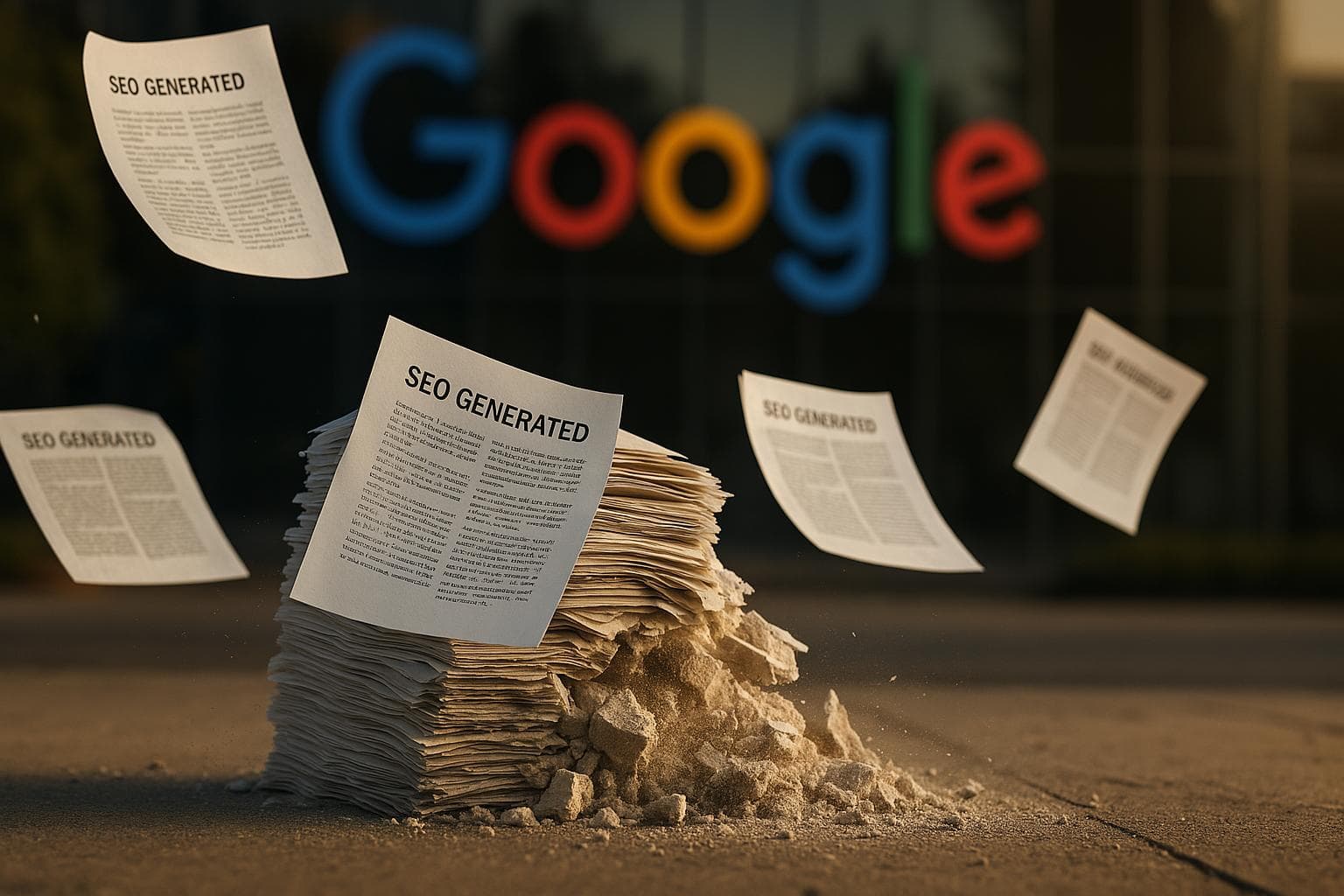Google’s Crackdown Sends Shockwaves Through Media and Affiliate Marketing — Are We Seeing the End of Mass-Produced SEO Content?

Affiliate marketing and content publishing have always danced a careful line between scale and substance. But in 2025, that balance is being tested like never before.
A major Google algorithm update has prompted widespread changes at some of the world’s largest digital media companies. Dotdash Meredith, CNN, and others are reportedly pulling back from freelance-produced content particularly in commerce and affiliate verticals in a bid to protect their search rankings from the fallout of Google’s latest spam crackdown.
It’s a moment of reckoning for the affiliate ecosystem, and it’s sending a clear message: the days of mass-produced, keyword-stuffed listicles are over. Google wants value and it’s now enforcing that demand with penalties.
Here’s what’s really happening, and what it means for publishers, freelancers, and affiliate marketers alike.
The Core Update That Changed Everything
The spark behind this shift is Google’s March 2024 core algorithm update, which targeted what it calls “unhelpful content.”
Translated into the language of affiliate marketing: content designed to rank well in search results but offering little actual value to readers. Think generic “best of” lists, rewritten Amazon reviews, or SEO-driven articles designed more for clicks than credibility.
For years, this kind of content has powered affiliate revenue across the web. Writers (often freelancers) churned out product roundups, gift guides, and “top 10” articles optimised for keywords like “best coffee maker 2025.” When a reader clicked through and bought something, the publisher earned a commission.
But Google is cracking down on what it now considers “scale without substance.” And the fallout has been immediate.
Big Media Hits the Panic Button
According to reporting by Business Insider, publishers like Dotdash Meredith home to AllRecipes, People, Better Homes & Gardens, and other top brands have reduced their reliance on freelancers across commerce verticals. CNN has reportedly pulled back from third-party contributions entirely in some cases.
The reason? A sudden and steep decline in Google search traffic. Pages that used to rank reliably often written by freelancers without deep product knowledge are now being pushed down in favour of more authoritative or genuinely helpful content.
In other words, Google is no longer fooled by scale. It’s rewarding depth, expertise, and originality.
What This Means for Affiliate Marketing
This isn’t just a media story. It’s an affiliate marketing story and a sign of where the entire ecosystem is headed.
Here are three key takeaways:
1. Quality Now Trumps Quantity
The old model was simple: publish hundreds (or thousands) of product-led articles, sprinkle in affiliate links, and hope some convert. But in 2025, Google is making it clear: if your content isn’t original, useful, and created with the reader in mind, it won’t survive.
That means affiliate marketers must invest in actual product experience, brand alignment, and content that educates or entertains not just sells.
2. Freelancers Need to Pivot to Authority
For freelance writers, this is a turning point. Those who can build authority whether through subject-matter expertise, niche focus, or bylines that carry weight will still find opportunities. But generic content mills and low-paid listicle writing are drying up fast.
If you’re a writer, now is the time to build a personal brand, focus on a niche, and pitch higher-value work with strategic input.
3. Brands and Networks Must Monitor Publisher Behaviour
Affiliate managers should take a close look at the types of content their partners are producing. Are they offering real value to readers? Are they compliant with Google’s guidelines? If not, even high-volume partners could see their traffic and your conversions collapse.
More than ever, brand safety and long-term partnership health depend on ethical, high-quality content.
A Shift to Creator-Driven Commerce?
Interestingly, while freelance content is being squeezed, creator-led commerce is rising. YouTube reviews, TikTok explainers, and long-form Substack posts often rank better than templated SEO pages because they’re personal, engaging, and built around community trust.
And these creators often operate with affiliate links, too but in a way that’s transparent and aligned with audience expectations.
This could signal a broader trend: from anonymous content to personality-led influence. People don’t want to read the “Top 10 Air Purifiers” written by AI or a random freelancer. They want recommendations from real people with real opinions.
So What Happens Next?
We’re entering a new era for affiliate marketing one that rewards expertise over output and engagement over reach. It’s not just about being first in the rankings anymore; it’s about deserving to be there.
Expect to see:
- More affiliate programmes tightening up their partner criteria
- Publishers focusing on fewer, higher-quality pieces
- A shift from search-driven commerce to community-driven recommendations
- Writers and content creators being asked to “show their work” i.e., prove they’ve actually used the product they’re reviewing
Final Thought
For years, affiliate marketers and publishers have asked: how long can we keep publishing at scale without slipping in quality?
Thanks to Google, we now have our answer.
This isn’t the end of affiliate marketing. Far from it. But it is the end of lazy content and the beginning of a smarter, more trustworthy affiliate economy.
And for those who are ready to play the long game, that’s very good news.
Are you interested in what’s next for the industry, tips on how to always remain proactive and making sure that you never miss an insight that could boost your performance? Join Affiverse’s newsletter here






